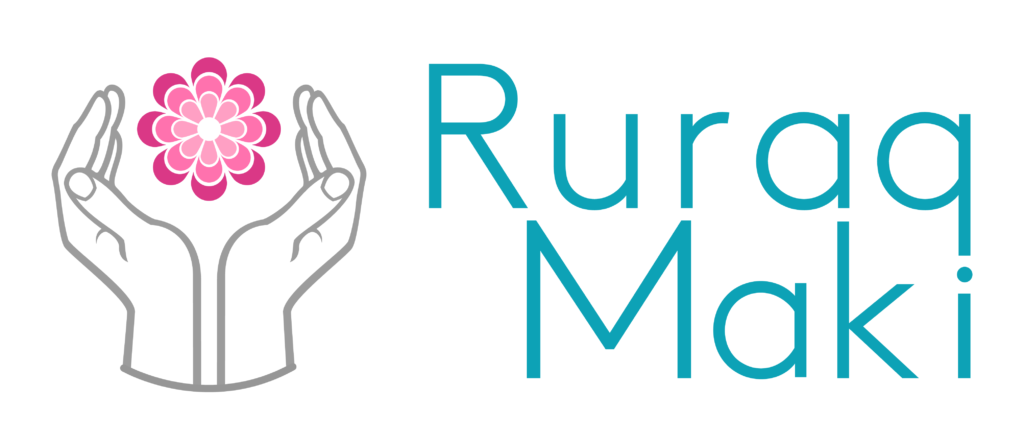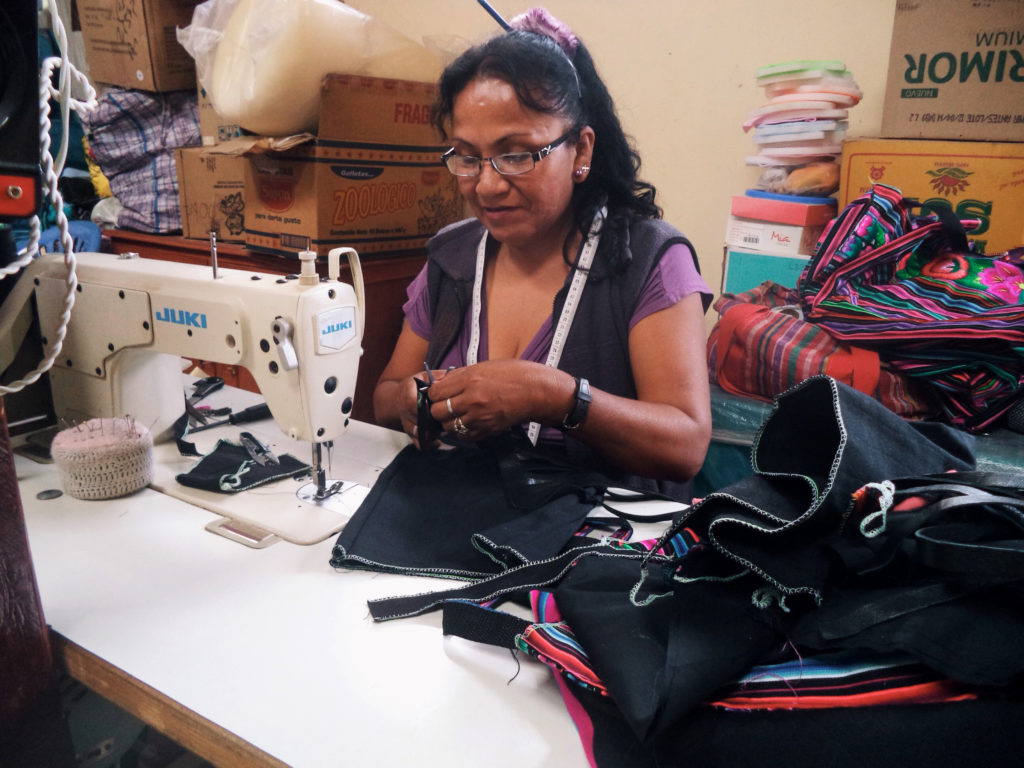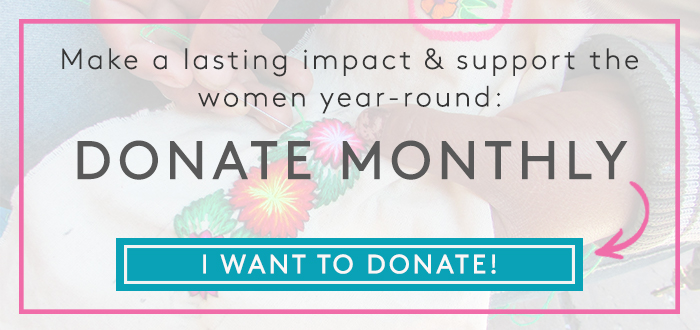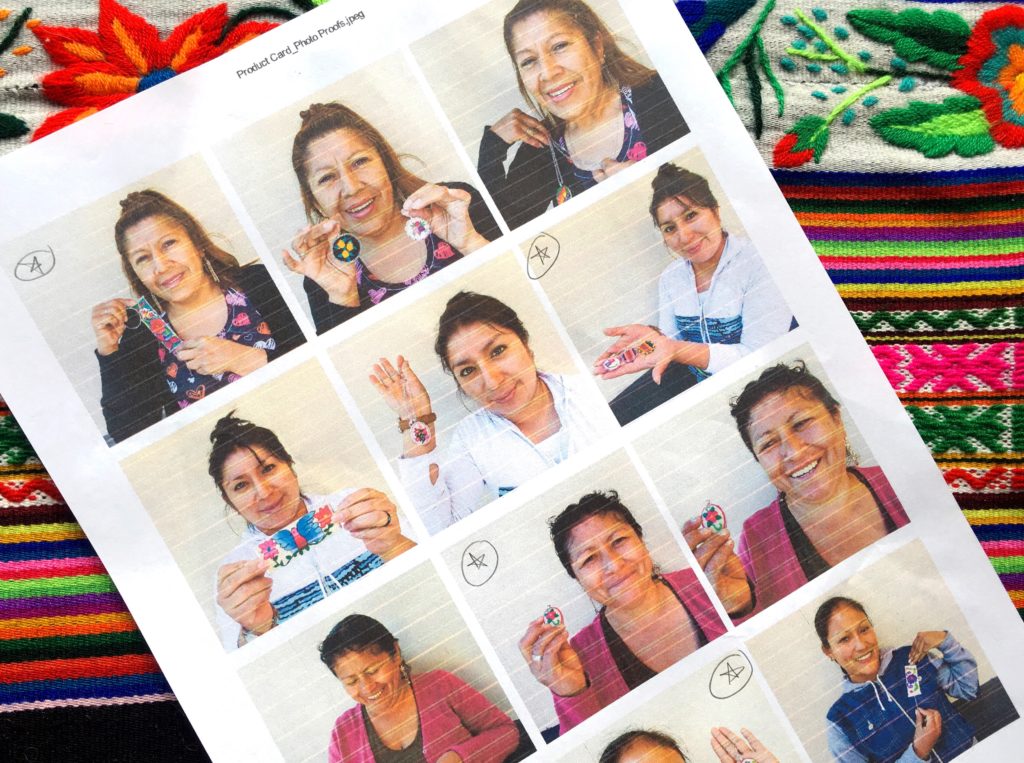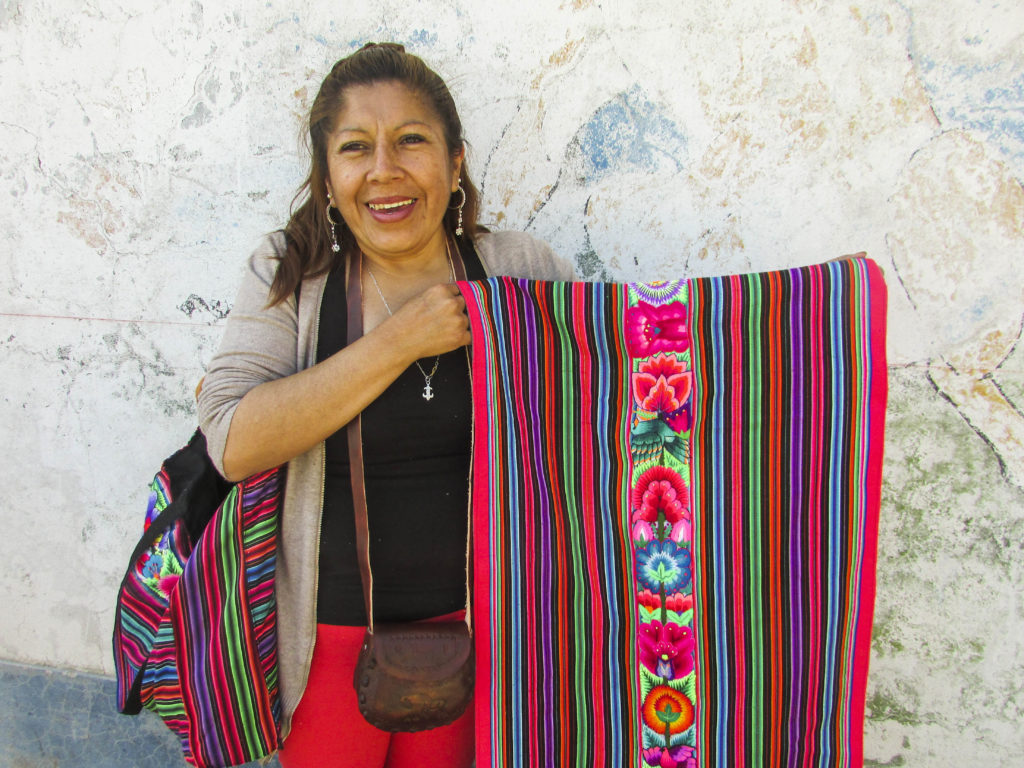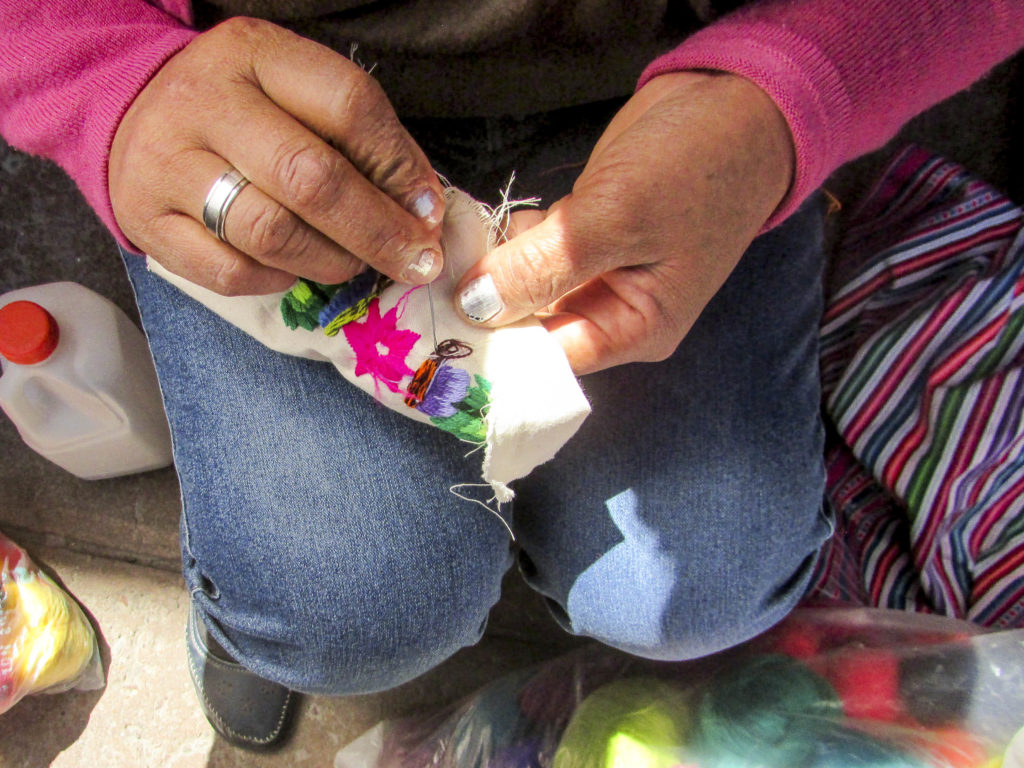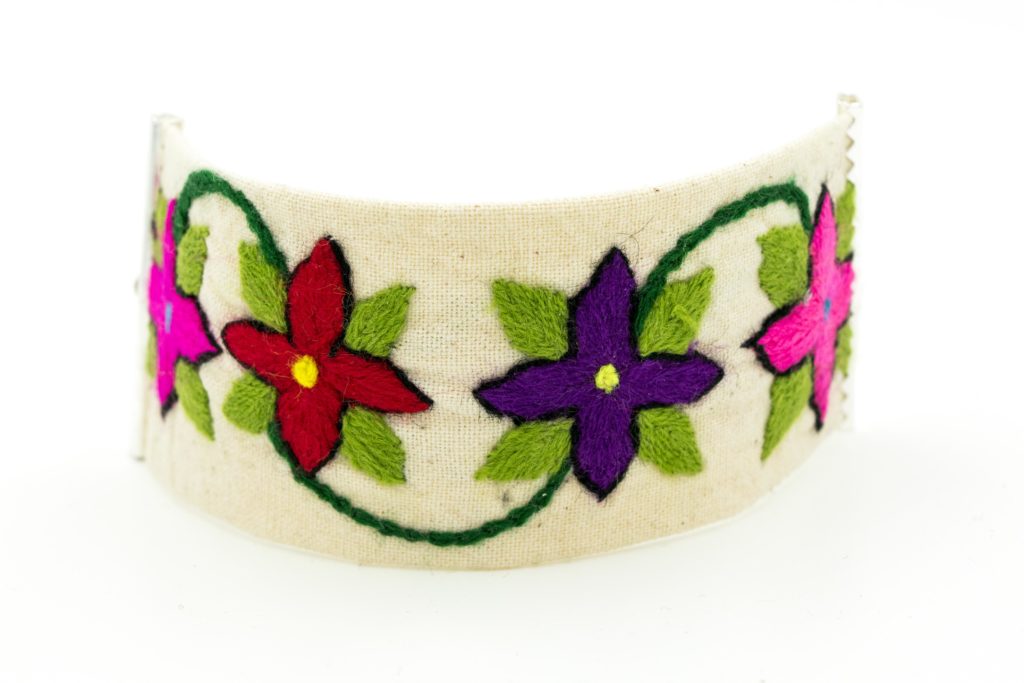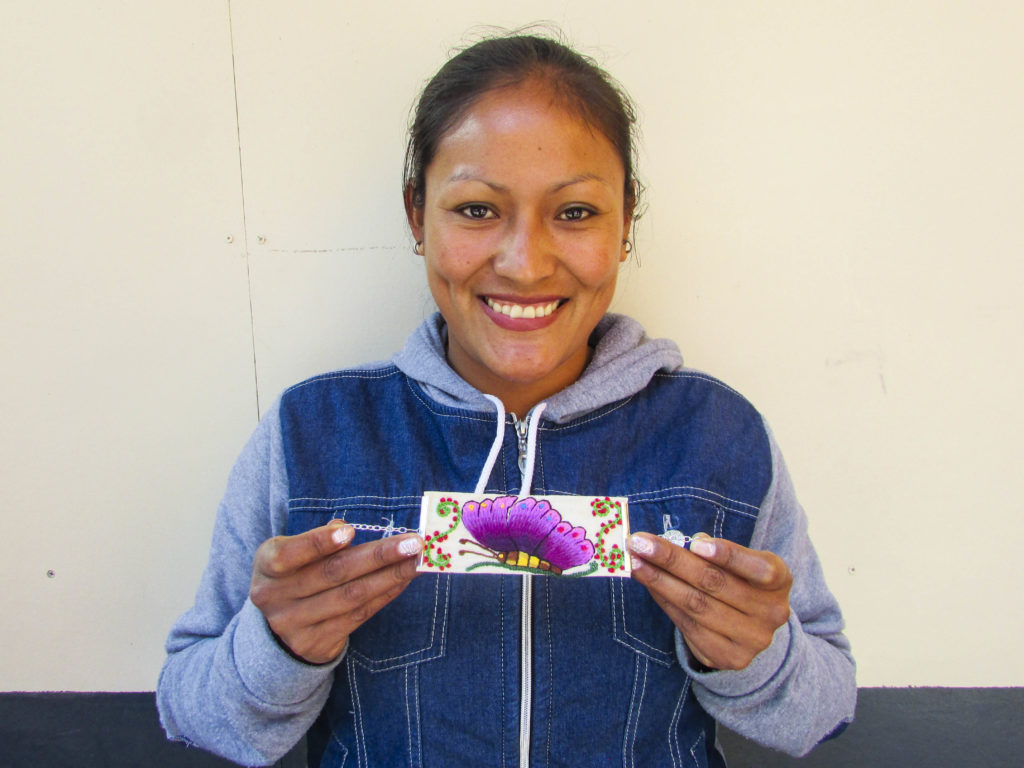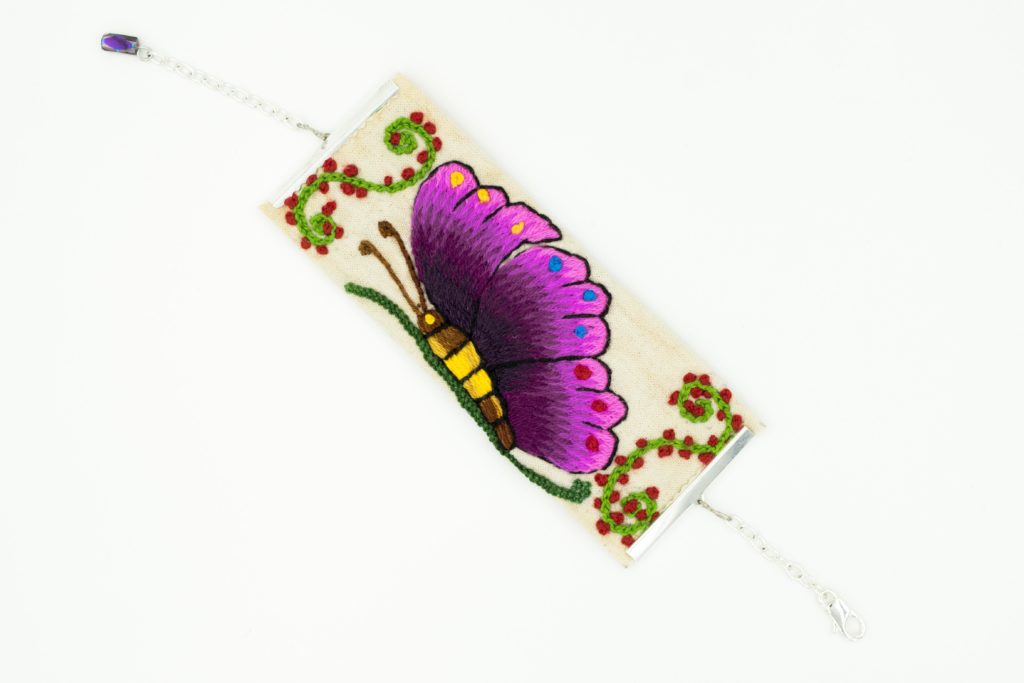Today was the last day in the prison and the moment of truth of if the women would have the jewelry order done and….. They did! There were 4 pieces missing, but for a first go around with a big jewelry order (50 pieces), it’s a fabulous start!
One of the things we did together was write the women’s story for the card that will accompany the jewelry. They wrote:
“Thank you for buying this product, your purchase goes to a good cause!
This product is handmade by a group of incarcerated women in Yanamilla Prison. We are women who are incarcerated for drug trafficking and we have children outside of the prison. We are learning these skills to help our children. Thankfully, for this work, we can send money to our children and help pay for their costs.
We hope when we are released we will continue to do this work and earn money.”
We also reviewed the products together and talked about quality control. While most of the products passed inspection, a few had issues that we needed to address. These products did not make the cut, which is why the order was short, however, it was a valuable learning experience for the women.
After the prison I went to pick up the sewing order from Gladys. Gladys is a formerly incarcerated woman who was very involved with Ruraq Maki’s programs. She was released last year and bought a small house near the prison to start a sewing workshop.
This year, Gladys and another women from the prison, Rosa, opened a workshop in town so they could receive more work. The workshop is small but mighty. There are two machines, a serger, and a cutting table- everything they need to take sewing orders.
Right now they are making clothing, tailoring clothes, making Ruraq Maki products, and taking custom orders from people. When I saw Galdys’ workshop I couldn’t stop smiling. I am SO proud of her and the way she has continued to grow this dream of having her own workshop.
And what makes me even happier is how proud she is of herself. She knows she’s building a future through this business and she is working hard to do it.
I just want to reiterate what has happened here: Gladys was incarcerated for 13 years for drug trafficking. She started trafficking because her husband had stomach cancer and she couldn’t pay for his medical costs. She learned to sew in the prison and spend EVERY DAY working in the sewing room. She saved her money to buy her own machines. After 13 years she was released and opened her own sewing business.
This is what happens when the women are given opportunities to stretch their skill set. This is the story we want to tell for every single woman in the prison. This is why Ruraq Maki exists- to even be a tiny part of this story is enough.
Because this isn’t something we’re just hearing about on TV, this is real life. And every time one of these women succeeds, it gives the others hope that they can too.
